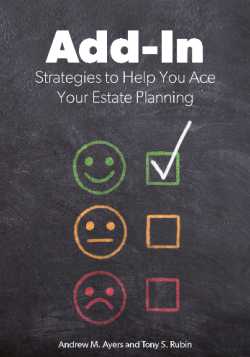 When you first start doing some research about estate planning, you'll often find a lot of information about different types of documents that you should use. A quick word of caution: you shouldn't just choose your estate plan documents because you heard a podcast or read a blog post. Each person's needs for their estate planning is unique and when it comes to trusts, it is a more complex document than many people need. It is governed by your local state's laws, there's no such thing as a "federal" trust. You can use it to own almost any kind of asset and the primary advantage of a trust is that it can eliminate many, if not all, of the filings that need to be done with your local probate court when you die.
When you first start doing some research about estate planning, you'll often find a lot of information about different types of documents that you should use. A quick word of caution: you shouldn't just choose your estate plan documents because you heard a podcast or read a blog post. Each person's needs for their estate planning is unique and when it comes to trusts, it is a more complex document than many people need. It is governed by your local state's laws, there's no such thing as a "federal" trust. You can use it to own almost any kind of asset and the primary advantage of a trust is that it can eliminate many, if not all, of the filings that need to be done with your local probate court when you die.
Types of Trusts
There are a few different types of trusts for you to consider if a trust is going to be part of your estate plan:
- Standalone Revocable Trust - a trust that you can change while you are alive, which becomes irrevocable when you die.
- Standalone Irrevocable Trust - a trust that you can't change once you've created it. It's a complex estate planning technique that is used for advanced planning and can be used for tax avoidance in some situations.
With both of these trusts, you create them during your lifetime and you can transfer assets into them at any time. You can also use a testamentary trust, which is a trust that is created in your will and only comes into existence when you die.
When Should I Create A Trust?
Whether you should create a trust is more in-depth than what you see in a blog post. But some general areas where you may want to create a trust:
- Pet trusts - providing for your pets after you're gone
- Special Needs Planning - protecting government benefits for your family member
- Anonymity of ownership of assets
- Protecting your records when you die - probate filings are public
- Allowing someone else to manage assets for you
Even if you think you fit into one of these categories, it's still important to work with a professional to make sure you really need a trust. Even though a trust may sound like it's right for you, there can be reasons why you wouldn't get one,
- No real tax benefits to a revocable living trust
- You have to retitle all of your assets
- If you put your home into your trust, you've got to change your insurance policy
- To get it right, you'll need to hire an attorney
Do I Still Need a Will?
If you decide to create a trust-based estate plan, you'll still need a will. One of the benefits is that the will can be used to catch any assets that are not in the trust and transfer them to the trust when you die. It can also allow you to name guardians for your children if they are under 18 - the trust only allows you to decide when the kids receive their inheritance.
Your trust will also be signed in a similar manner to your will. Technically, you need to make sure you sign the trust before the will so that the will has a place to "pour over" your assets. You'll often also need to sign Affidavits or Certifications to prove that your trust exists.
What Are The Main Components of a Trust? Some Terminology
There are four main components of a trust that you need to know about. Understanding this terminology will help you put together the right plan for you:
- Settlor/Grantor - the person making the trust
- Trustees - the person managing the trust
- Beneficiaries - the person benefitting from the trust
- Property - what the trust owns
Mistakes to Avoid
When I am working with clients who have tried to create a trust themselves, there are five main mistakes I see that you want to make sure to avoid:
- Using a generic form from a website - it can actually undo all you are trying to plan for
- Not designating successor trustees
- Not drafting the other documents in your estate plan (your will, healthcare documents, powers of attorney)
- Failing to fund the trust - you don't need to immediately transfer all of your assets into the trust, but you need to fund it at some point
- Not reviewing your trust - if it's revocable, it can and should be changed as needed.
Next Steps
If you're ready to discuss if a trust-based estate plan is right for you and your family, let's set up a Legal Strategy Session to discuss the best options for you and your legacy.


